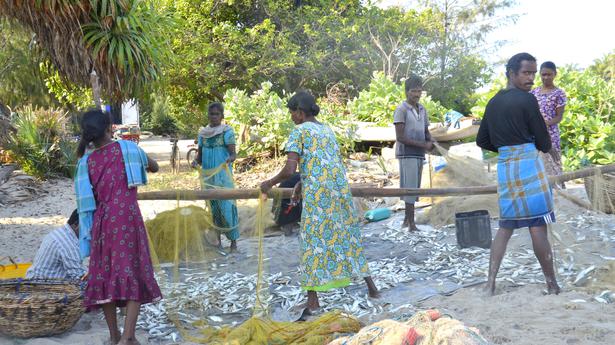
‘Chinese investment’ in sea cucumber farm sparks concerns among northern Sri Lankan fishermen
The Hindu
Northern Sri Lankan fishermen see government’s thrust on commercial aquaculture as latest threat to their livelihoods and land.
Citing media reports of a Chinese firm investing in a sea cucumber farm in Pungudutivu, off Jaffna Peninsula in northern Sri Lanka, local fishermen have raised concern over its potential impact on their livelihoods, marine ecosystem, and land.
“We recognise the need for investment in our war-affected region, but the sea cucumber farms are mainly for exports. They will only bring more harm than benefit for those of us living here,” said Annalingam Annarasa, President of the Jaffna Fisheries Federation. The commercial ventures, they fear, could adversely affect the local marine ecology on which their livelihoods rely.
Small-scale artisanal fishermen like him see the government’s recent push on aquaculture as the latest blow to their livelihoods, already precarious due to the relentless bottom-trawling by Indian fishermen in their seas for years, and the drastic, nearly four-fold increase in kerosene price last month.
The Palk Bay fisheries conflict: A tale of competing livelihoods and a depleted catch
In 2021, Sri Lanka exported about 336 tonnes of sea cucumber to China, Singapore, and Hong Kong, according to local media reports. Desperate to find dollars to stabilise its battered economy, the Sri Lankan government appears to have identified potential for both, foreign investment and exports in breeding and selling the sausage-shaped marine animal considered a delicacy in China and Southeast Asia. Locals do not consume sea cucumbers.
In June this year, the Cabinet approved a proposal for a large-scale commercial sea cucumber project spanning 5,000 acres in Jaffna, Mannar, Kilinochchi and Batticaloa districts in the north and east, after Sri Lanka earned “a significant amount” of foreign exchange by exporting sea cucumbers. The proposal came from Fisheries Minister Douglas Devananda, who represents Jaffna district in Parliament. The National Aquaculture Development Authority functioning under his ministry is leading the initiative.
“We need both investment and technology in the north to cultivate sea cucumbers. I have been asking India for five to six years but have not had any response. We must explore other options, right? We are only talking to a Chinese firm, no project has been finalised yet,” Mr. Devananda told The Hindu, adding he will “never allow” any threat to India’s security concerns. Pungudutivu, where the farm is being proposed, is near Nainativu, which is one of the three islands where Sri Lanka had cleared a Chinese renewable energy project last year. However, with India objecting to it, citing the project’s proximity to its southern coast, Sri Lanka cancelled the venture, instead agreeing to accommodate an Indian project at the three sites.











